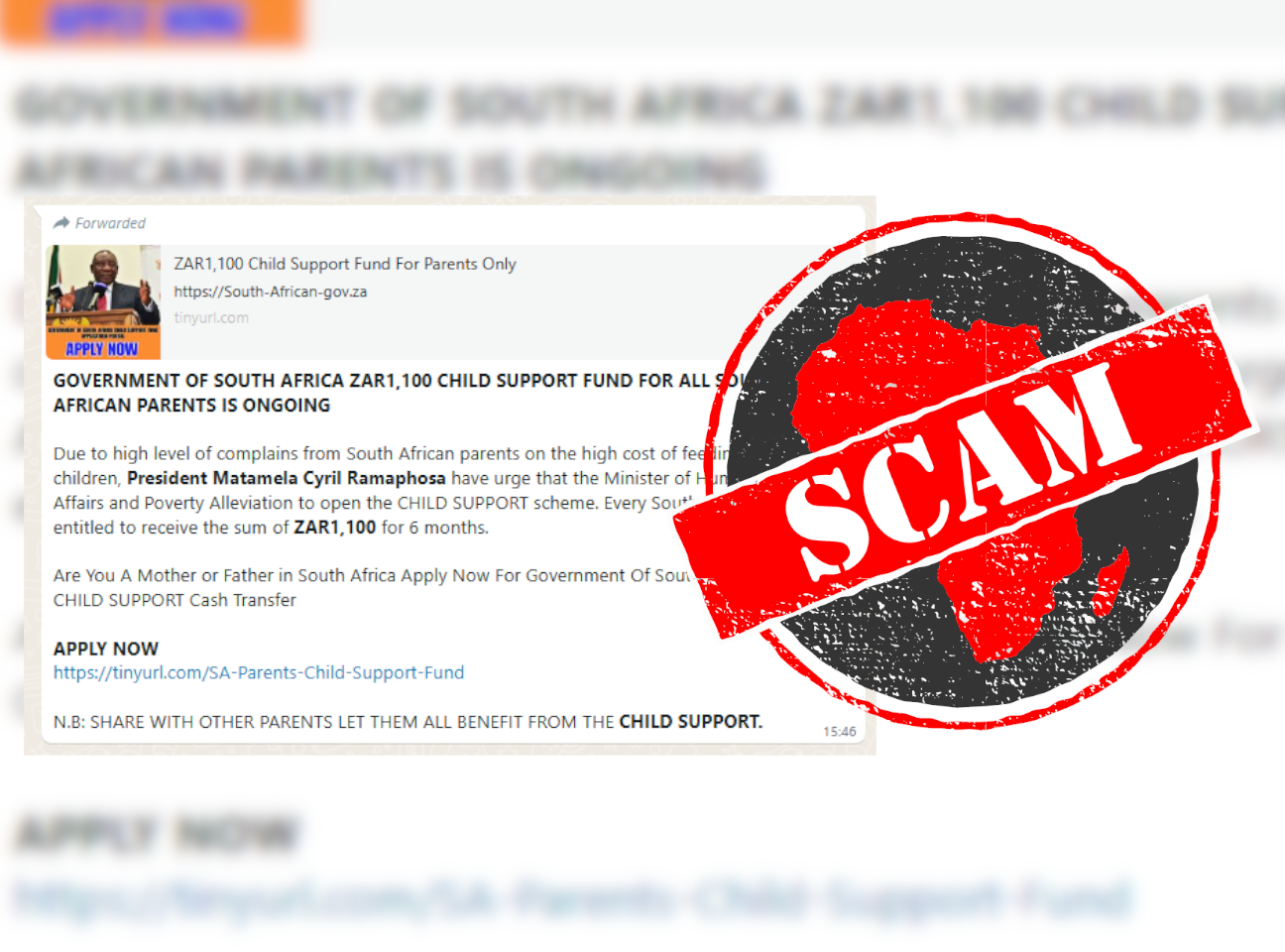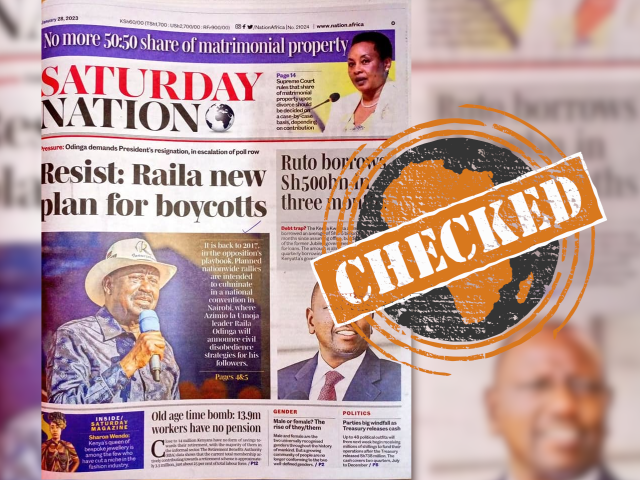IN SHORT: A message doing the rounds on social media claims that the South African government will be awarding child support grants to parents through a shared link. But the government agency responsible says the claim is false.
The South African government is going to give “all South African parents” a child support grant of R1,100 (about US$59) for six months. That's according to a message that's been doing the rounds on WhatsApp and has been sent to our WhatsApp line several times.
The message has also been shared on Facebook, on public groups with thousands of members, with some users asking if the claim is true.
Child support grants in South Africa provide financial support to the primary caregiver of a child under the age of 18. The grant aims to protect children living in poverty.
The poorly written message reads:
Due to high level of complains from South African parents on the high cost of feeding their children, President Matamela Cyril Ramaphosa have urge that the Minister of Humanitarian Affairs and Poverty Alleviation to open the CHILD SUPPORT scheme. Every South African parents is entitled to receive the sum of ZAR1,100 for 6 months.
It adds that those who are “a mother or father in South Africa” can apply through a link included in the message.
It then urges readers to “share with other parents” to “let them all benefit from the child support”.
So can the message and link be trusted, or is it just another scam? We checked.

Grammatical errors and a dodgy link
Africa Check has previously debunked many similar scam messages claiming to offer giveaways from government officials. This claim is no different.
The message is riddled with grammatical errors. Instead of taking the reader to the official South African government website, the attached link leads to a suspicious-looking website.
The website has a few red flags. It is hosted on Blogspot, a free content management system. We have previously noted that site owners often use these free platforms to make money from views and clicks.
It asks readers for their personal information, such as their full name, email address and phone number, a tactic known as phishing.
The website also uses emotive language, such as "DON'T MISS THIS OFFER!!!", to encourage readers to fill in their details for fear of missing out on a "free reward".
Claim stamped ‘fake’ by Sassa
There is no “minister of humanitarian affairs and poverty alleviation” in South Africa. And child support grants are administered by the South African Social Security Agency (Sassa), a national agency of the South African government.
We searched Sassa’s social media accounts for any mention of the claim. We came across a Facebook post published by Sassa on 12 January 2024, with a screenshot of the message stamped “FAKE”.
The caption of the post reads: “Please note that the below information is false and does NOT come from SASSA #SASSACARES @socialdevelopmentza @nda_rsa @gcismedia @governmentza.”
The message and its link are a scam.
Those who wish to apply for the child support grant can visit the official government website or the Sassa website for more information.
Similar scam in Kenya
A similar message with a link to a dodgy website is also circulating on social media in Kenya.
It claims that the Kenyan government is giving every parent KSh10,000 (about US$62) to feed their children after complaints from parents.
But the claim is also false and users should be wary of scammers.
Read our guide to Facebook scams and how to spot them here.
Republish our content for free
For publishers: what to do if your post is rated false
A fact-checker has rated your Facebook or Instagram post as “false”, “altered”, “partly false” or “missing context”. This could have serious consequences. What do you do?
Click on our guide for the steps you should follow.
Publishers guideAfrica Check teams up with Facebook
Africa Check is a partner in Meta's third-party fact-checking programme to help stop the spread of false information on social media.
The content we rate as “false” will be downgraded on Facebook and Instagram. This means fewer people will see it.
You can also help identify false information on Facebook. This guide explains how.





Add new comment